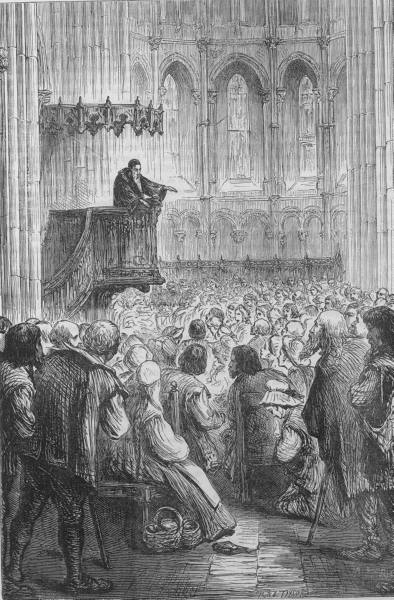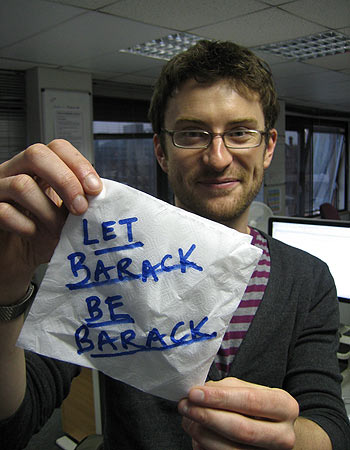 The Value of Oral Communication
The Value of Oral CommunicationHaving laid out some of the problems facing preaching in church, it would be tempting to just do away with it. The common lament I hear is preaching is dry, boring and painful. And with the rise of the internet and the massive social changes that come with it, maybe preaching has had it's day.
However, being a good Anglican, I want to suggest that the way forward is the via media. I want to find some middle ground. I don't think we need to stop preaching. Instead, we need to preach better, we need to 'preach smarter'. It was encouraging to read Peter Adam describe John Calvin's preaching. Adam goes on to argue that it was Calvin's sermons rather than The Institutes and the Commentaries that were his most significant contribution: "[I]t was more through his preaching than through any other aspect of his work that he exercised the extraordinary influence everyone has acknowledged him to have had" (R.S. Wallace).
Calvin helped create a powerful pattern of vernacular expository preaching. His aim was to let God have his say, to project God's eloquence, to help the congregation to hear the voice of God. Calvin's sermons, heard in Geneva, written down, published, translated and published again, helped to reform Europe. We need to recover the health and vigour of engaged and lively expository preaching for the maturity and usefulness of the people of God, for the conversion of the world, for God's glory. We have much to learn from Calvin's preaching. - Peter Adam, "'Preaching of a Lively Kind' - Calvin's Engaged Expository Preaching", Engaging With Calvin, ed. M Thompson, IVP 2009.If we want to preach better, or "preach smarter", then we need to recover the health and vigour of engaged and lively expository preaching for the maturity and usefulness of the people of God, for the conversion of the world, for God's glory. Preaching can be powerful when it is done well. Speech is powerful. Calvin's sermons transformed not just one city, but large swathes of a continent. Sure, the sixteenth century was a far more oral society than at the start of the twenty-first century.
But even today a good speech can move people. We've seen that in the past year with Barak Obama's election to the American Presidency. Never before had an election campaign harnassed the power of the internet. Facebook, YouTube, Twitter. You name it, Obama was on it. But it was the power of speech that captured a nation's imagination. Let us consider what this wordsmith has to offer us regarding preaching...




